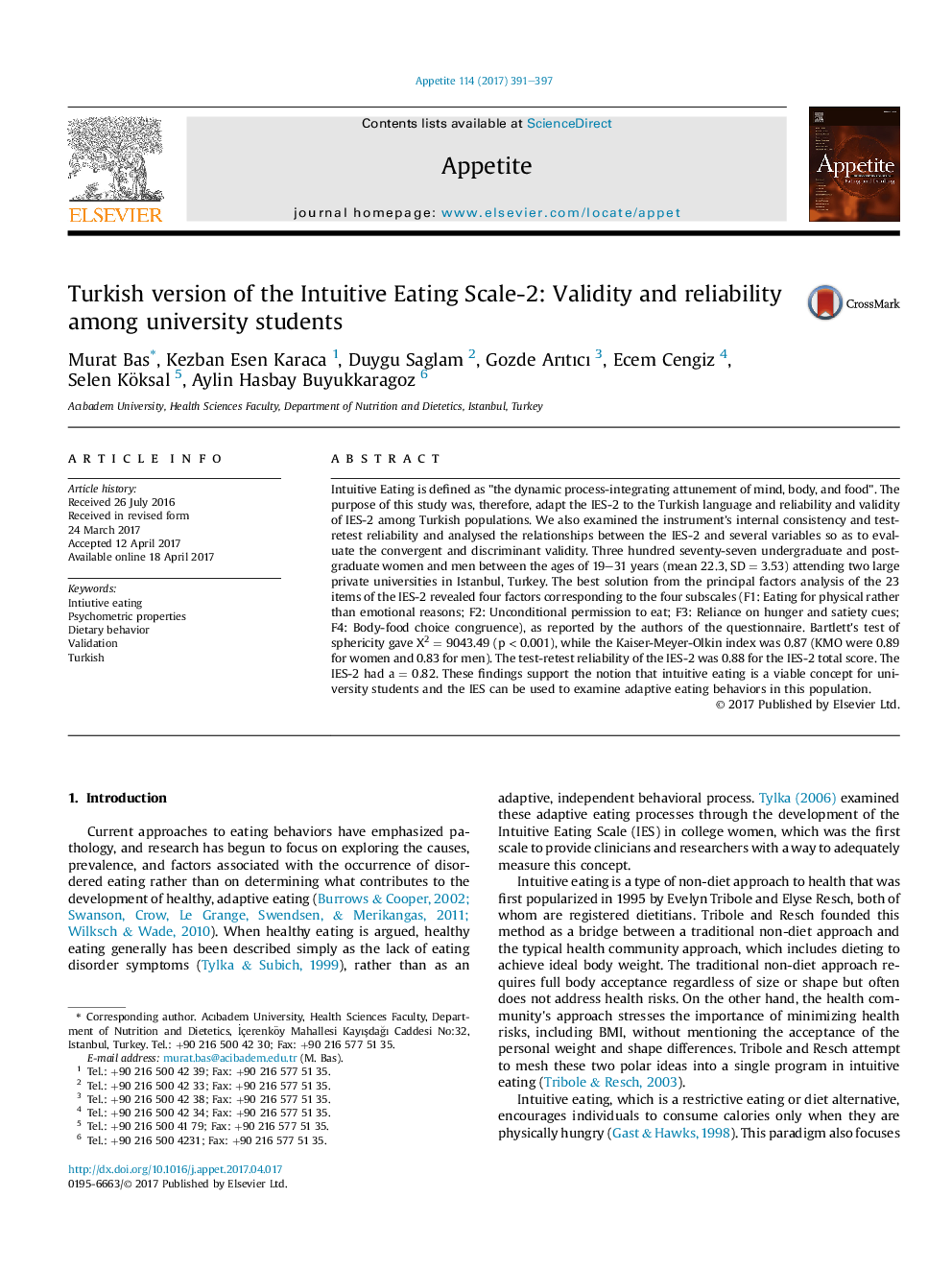ترجمه فارسی عنوان مقاله
نسخه ترکیبی مقیاس غذای خودآموز 2: اعتبار و قابلیت اطمینان در میان دانشجویان دانشگاه
عنوان انگلیسی
Turkish version of the Intuitive Eating Scale-2: Validity and reliability among university students
| کد مقاله | سال انتشار | تعداد صفحات مقاله انگلیسی |
|---|---|---|
| 138465 | 2017 | 7 صفحه PDF |
منبع

Publisher : Elsevier - Science Direct (الزویر - ساینس دایرکت)
Journal : Appetite, Volume 114, 1 July 2017, Pages 391-397
ترجمه کلمات کلیدی
خوردن ذاتی، خواص روان سنجی، رفتار رژیم غذایی، اعتبار سنجی، ترکی،
کلمات کلیدی انگلیسی
Intiutive eating; Psychometric properties; Dietary behavior; Validation; Turkish;

